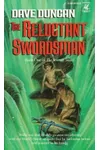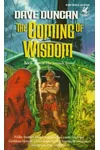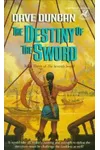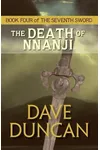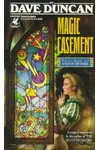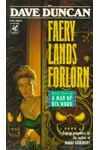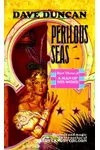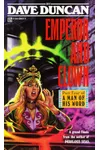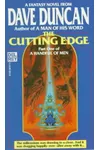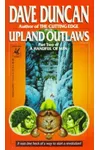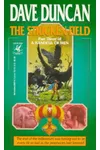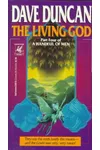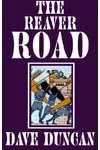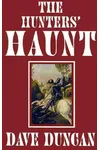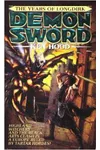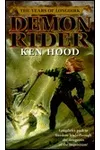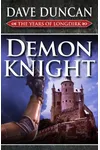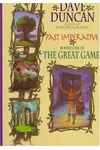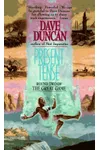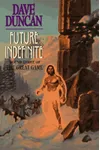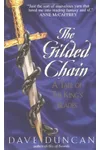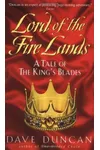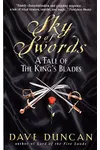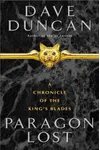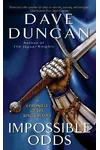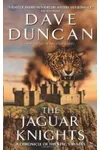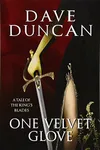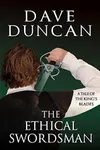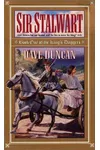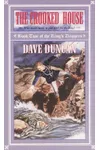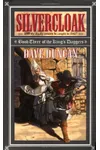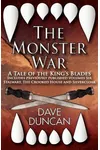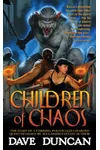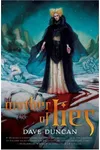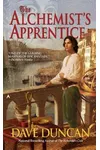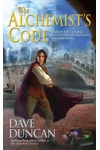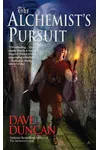Picture a Scottish geologist who swapped oil fields for fantastical worlds, weaving over fifty novels that thrilled readers worldwide—meet Dave Duncan! Born in 1933, this late-blooming author didn’t publish his first book until 53, yet became a titan of fantasy and science fiction, earning accolades and a spot in the Canadian Science Fiction and Fantasy Hall of Fame.
From his intricate magic systems to tales of unlikely heroes, Duncan’s stories blend science, history, and imagination with a playful spark. Let’s dive into his journey, from rock-hunting roots to crafting epic sagas that still captivate fans today.
The Making of Dave Duncan
Born in Newport-on-Tay, Scotland, on June 30, 1933, David John Duncan grew up with a love for history and science. Educated at the High School of Dundee and later studying geology at the University of St Andrews, he moved to Calgary, Alberta, in 1955, becoming a Canadian citizen in 1960. For 31 years, he worked as a petroleum geologist, mapping the earth’s secrets until a 1986 oil industry slump pushed him to chase a secret passion: writing. At 53, he sold his first novel, A Rose-Red City, just weeks after leaving his geology career, launching a prolific new chapter.
Dave Duncan’s Unforgettable Stories
Duncan’s novels are a masterclass in world-building, blending rigorous logic with fantastical flair. His breakout series, The Seventh Sword (1988–2012), follows Wallie Smith, a modern man reborn as a barbarian swordsman in a goddess-driven world, grappling with medieval challenges and 20th-century ethics. The series’ action-packed plots and moral dilemmas hooked readers, showcasing Duncan’s knack for smart protagonists.
His A Man of His Word quartet (1990–1991) transports readers to Pandemia, where stableboy Rap and Princess Inos navigate a magical realm tied to powerful words. Duncan’s intricate magic systems—where words grant genius or sorcery—dazzled fans, earning praise for their originality. West of January (1989), a standalone planetary romance, won the 1990 Aurora Award for its vivid tale of a world with 200-year days, reflecting Duncan’s geological roots. Later, Children of Chaos (2006), part of the Dodec series, nabbed another Aurora, cementing his legacy with its dodecahedral planet and complex sibling dynamics.
Known for witty dialogue and gray-shaded antagonists, Duncan avoided formulaic heroes, favoring clever underdogs who triumph through brains and teamwork. His pseudonyms, Ken Hood and Sarah B. Franklin, let him explore diverse genres, from historical fantasy to young adult tales, proving his versatility across over sixty books.
Why Dave Duncan Matters
Duncan’s impact on Canadian speculative fiction is undeniable. As a founding member of SF Canada, he helped shape a national identity for the genre, distinct from American tropes. His protagonists—often ordinary folks rising to extraordinary challenges—resonated with readers seeking relatable heroes. Induction into the Canadian Science Fiction and Fantasy Hall of Fame in 2015 celebrated his role as a modern bard, spinning yarns that enthralled generations.
Even after his passing in 2018, Duncan’s worlds endure, inspiring fans and writers with their blend of scientific curiosity and fantastical heart. His ability to craft fresh realms for each series, from tidal-locked planets to magical Venices, keeps his work timeless, inviting new readers to explore his legacy.
About Dave Duncan
- Born: June 30, 1933, Newport-on-Tay, Scotland
- Key Works: The Seventh Sword, A Man of His Word, West of January, The King’s Blades
- Awards: Aurora Awards (1990, 2007), Canadian Science Fiction and Fantasy Hall of Fame (2015)
- Died: October 29, 2018, Victoria, British Columbia
Ready to explore epic quests and clever heroes? Grab The Reluctant Swordsman or Magic Casement and dive into Dave Duncan’s thrilling fantasy worlds today!
